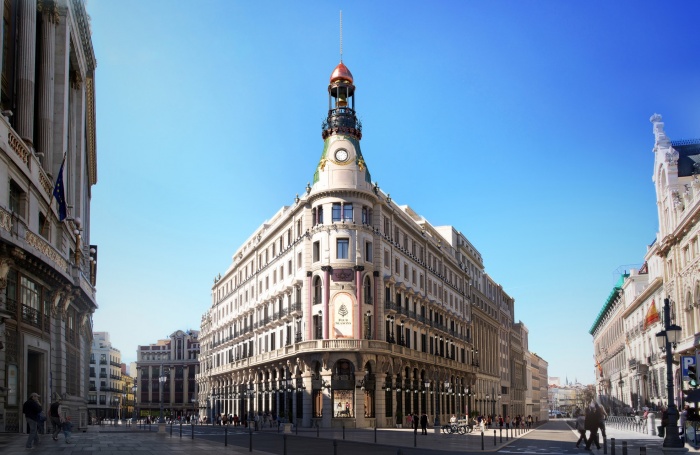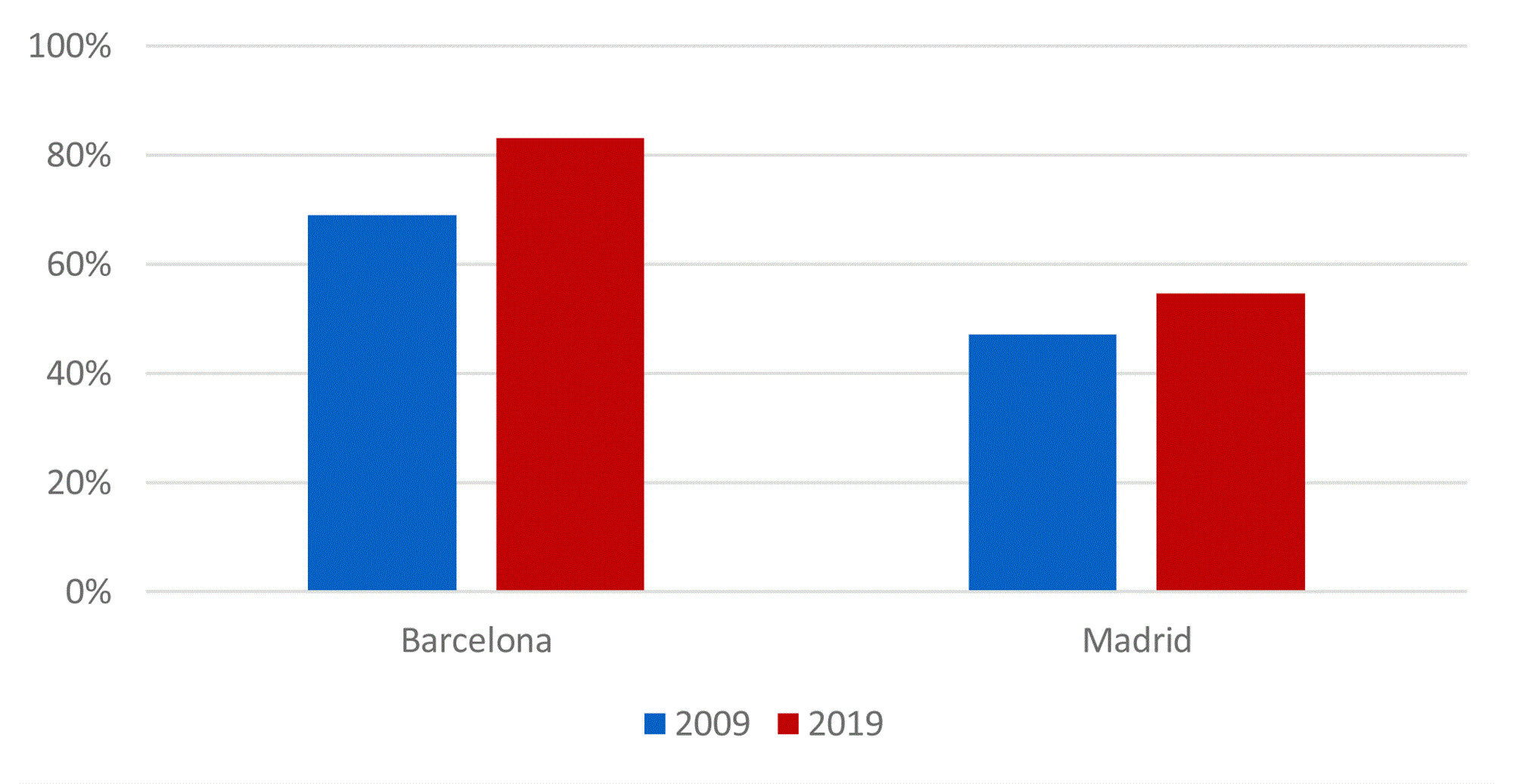
Breaking Travel News investigates: How Spanish hospitality might recover from coronavirus
With the first chinks of light being seen in the Spanish battle against the coronavirus pandemic, Sophie Perret, senior director with HVS, here examines how two key tourism destinations might begin to recover from its impact
Half of all global tourism arrivals historically come to Europe; and, within Europe, Spain enjoys a disproportionate share of this visitation, with more than 80 million visiting the country yearly. While the Covid-19 pandemic ravages Europe and takes a particularly heavy toll in Spain, it is important to evaluate how the reliance of this country on international visitation might shape the recovery of its two main urban markets once the pandemic subsides.
The reliance on international demand has historically allowed hotel markets to yield room rates to a greater extent than is the case when demand is mostly domestic. Following its successful hosting of the 1992 Olympics, Barcelona became an international tourism success story. While the market’s RevPAR in the late 1990s trailed that of Madrid by about ten per cent, as it enjoyed high occupancies but lower rates, a decade later its RevPAR was 25 per cent higher than that of Madrid.
This shift was mostly rate driven. The share of visitation has continued to shift towards international arrivals in Barcelona: over the last decade, domestic demand has decreased from around an already modest 30 per cent in 2009 to less than 20 per cent in 2019. This shift has been substantially less pronounced for Madrid, which has traditionally been considered the corporate beating heart of Spain: its domestic share represented around 45 per cent of total arrivals in 2019, down from just over half in 2009.

Share of international visitation: European Cities Tourism; INE
While Madrid’s transition from a corporate hub into a more diversified market with a greater share of leisure is ongoing, its strong performance over the last couple of years is likely to be further compounded by the expected opening of luxury hotels such as the Mandarin Oriental (following the renovation of the Ritz Hotel) and the Four Seasons. Both hotels were due to open later in 2020, but these dates are currently being revised. The sale of the Villa Magna for €1.4 million a key in December 2018 and the forward sale of the Edition for €1.1 million a key in February reflect the evolving profile of this market, historically shy on luxury.
The strong reliance of Barcelona on its leisure base is somewhat balanced by the success of this city from an events and meetings perspective, where the ICCA consistently ranks this market among the top ones across the world (in 2017, it hosted the most meetings in the world). However, it is true that both international leisure and large meetings and events are likely to be the type of demand that might take longer to recover, depending on how quickly or otherwise international travel resumes and blocks on corporate spending on travel and meetings are lifted.
ADVERTISEMENT
On the other hand, a busy pipeline for Madrid with some 15 hotel projects for the next few years could put downward pressure on occupancy levels in the city, while in Barcelona new hotels are in the single digits at nine projects, owing to constraints to future developments since the implementation of the PEUAT law in 2017.
It is likely that a number of proposed hotels could take longer to open than originally planned and some may be cancelled altogether. It is more probable, in any case, that Madrid will see a faster recovery of its occupancy levels once the domestic corporate base returns, as Barcelona needs to wait longer for the full re-establishment of international travel routes after the pandemic in order to enjoy normal occupancy levels. An additional ‘unknown quantity’ this time around, however, is that some of the currently closed hotels in both cities may never reopen, either because of the bankruptcy of their owners or an alternative use being preferred. The time taken for closed hotels to reopen will also need to be factored into the recovery of each city’s hotel market and will serve to prolong the time this takes.
Coronavirus
For all the latest from Breaking Travel News on the coronavirus pandemic, take a look here.

